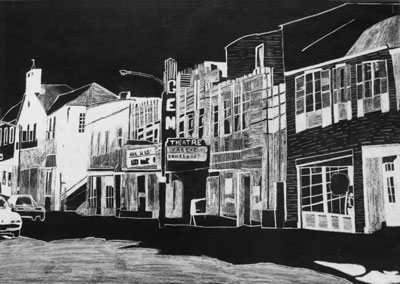All Nonfiction
- Bullying
- Books
- Academic
- Author Interviews
- Celebrity interviews
- College Articles
- College Essays
- Educator of the Year
- Heroes
- Interviews
- Memoir
- Personal Experience
- Sports
- Travel & Culture
All Opinions
- Bullying
- Current Events / Politics
- Discrimination
- Drugs / Alcohol / Smoking
- Entertainment / Celebrities
- Environment
- Love / Relationships
- Movies / Music / TV
- Pop Culture / Trends
- School / College
- Social Issues / Civics
- Spirituality / Religion
- Sports / Hobbies
All Hot Topics
- Bullying
- Community Service
- Environment
- Health
- Letters to the Editor
- Pride & Prejudice
- What Matters
- Back
Summer Guide
- Program Links
- Program Reviews
- Back
College Guide
- College Links
- College Reviews
- College Essays
- College Articles
- Back
An Argument For Entertainment
Within an essay prompt from my lovely AP English teacher, I was recently forced to ponder the much debated topic of entertainment, and the possible harmful outcomes of entertainment. While I agree that certain types of entertainment may prove harmful or damaging to a developing generation of children (I’m looking at you extremely violent video games), I believe it is ridiculous to say that modern entertainment (and I’m talking movies, television series, news, magazines, theater, etc.) is inherently corrosive. Furthermore, the assertion that entertainment has the capacity to and eventually will ruin society is clearly false due to the fact that it instead fosters creativity and subtly teaches both History and morals to those who might not understand by more conventional means.
For those with imaginative minds, entertainment in the form of movies, plays, or television acts as a playground for creativity and as a gateway for curiosity. Speaking from personal experience, I know that entertainment led me to ambition; led me to always contemplate the ideas performances presented and eventually to my decided career choice. It makes society watch aspects of life or situations they are unfamiliar with in a new way, one that they may not have considered or even been exposed to previously. Ideas are often sparked from watching others and learning from their actions or mistakes. Entertainment is no different. So often it presents situations or events in which characters must make decisions, and often those decisions are not good one. Being able to see the path that character was on, allows society to make their own choice with better knowledge of potential consequences. Scientists as well look to entertainment for scientific challenges. Lightsabers, created in the George Lucas science fiction trilogy Star Wars has officially been brought to real life. Had they not been a mere idea on a movie screen, how else would scientists have thought to create a potentially innovative design? Entertainment opens a world of ideas that lead to the furthering on imagination, curiosity, as well as science.
Entertainment is often fun and whacky, but it also teaches understood morals that may not be easily learned through everyday situations but must be adopted nonetheless. History as well may be learned through the entertainment industry, brought to life on screen rather than taught monotonously through textbooks or referenced within allusions and conversation between characters. A clear example of a historical character brought to life was Daniel Day Lewis’s portrayal of Abraham Lincoln in “Lincoln”. The movie accurately profiled the life of the American president as well as several events throughout American history leading up through the Civil War. This portrayal was shown internationally, teaching not only Americans, but international countries of an American icon and president. The entertainment industry teaches through its products, they educate those who may not have the time or ability to focus on textbook reading. For children, many of whom may not be excellent readers, adaptations of famous fairytales and stories teach valuable morals within the film, morals which they then will take with them for the rest of their life. Allusions as well weaved within film lead to the audience’s curiosity, perhaps persuading them to go out and learn about the allusions reference, broadening their knowledge.
In contrast to the allegation that entertainment has the capacity to ruin society and lead to the downfall of civilization, it obviously has the opposite affect because of the creativity such entertainment inspires and because of things society may take away from it. Instead, entertainment has the capacity to make society grow.

Similar Articles
JOIN THE DISCUSSION
This article has 0 comments.
